Case Study: 14 Critical Errors Found on a New Roof in Englewood
By Captain Adam Nielsen | Published on February 15, 2023
The Mission
A homeowner in Englewood, CO, contacted us for a second opinion. Her roof had been replaced in the summer of 2022, but during the following winter, she experienced severe ice damming for the first time. This was a major red flag that the installation was compromised. Our objective was to perform a full tactical assessment and document any deficiencies for the City of Englewood Building Department.
Intel Gathered: A Cascade of Failures
Our on-roof reconnaissance uncovered a shocking 14 distinct installation errors. The crew responsible had demonstrated a systemic failure to follow both manufacturer specifications and basic building codes. Below are just a few of the critical threats we identified.
Failure Point 1: Fatally Flawed Ice & Water Shield
The crew installed a single 36-inch strip of Ice & Water Shield (IWS), but due to the roof's pitch and soffit depth, a 50-inch width was required to meet code. Worse, as confirmed in the image below, the crew never even removed the plastic backing strip, meaning the membrane would never adhere to the roof deck. This rendered the home's most important leak defense completely useless.
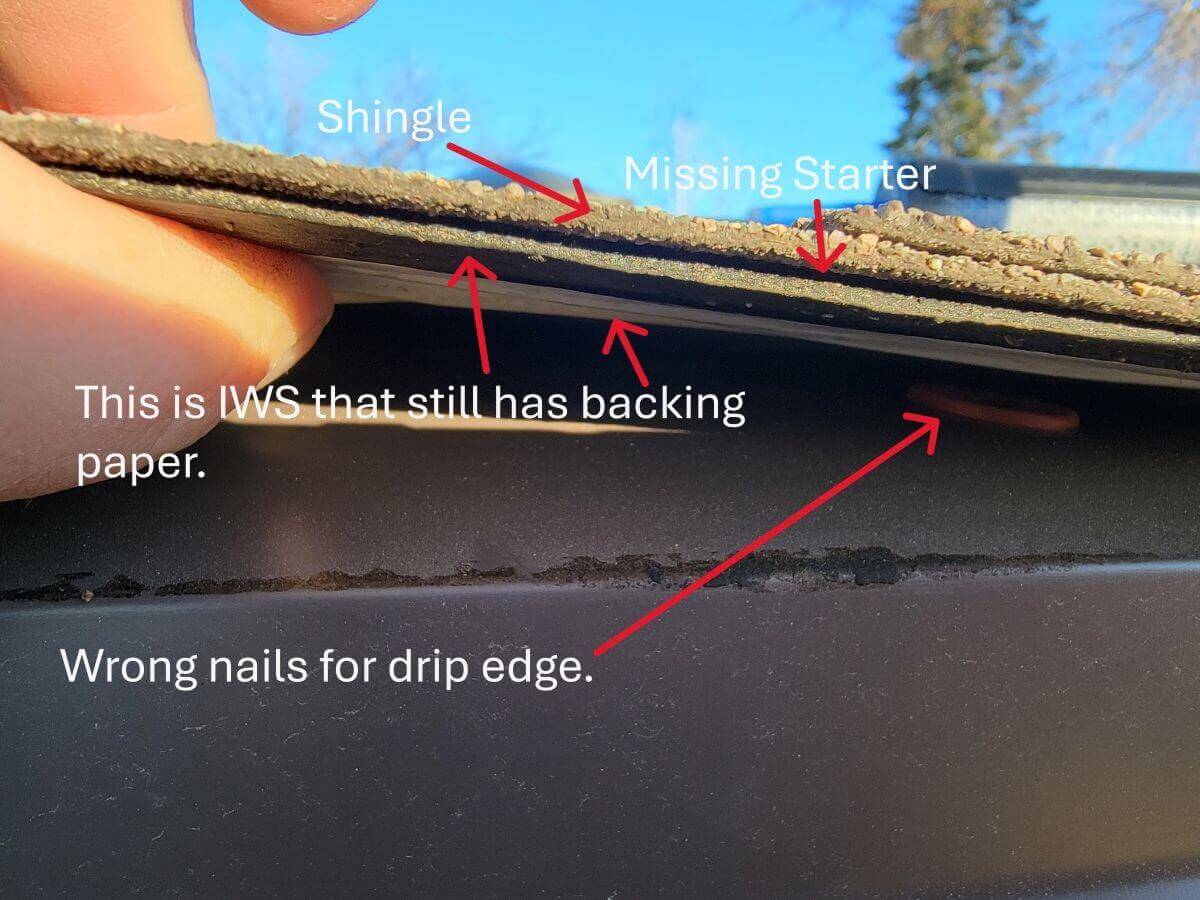
Failure Point 2: Conflicting Ventilation
The previous crew had installed three different types of exhaust vents—a box vent, a turbine vent, and a ridge vent. This is a classic "zombie roofer" mistake that short-circuits airflow, causing the upper vents to pull air from each other instead of from the eaves. This leads to moisture buildup, which was a primary cause of the homeowner's ice dams.
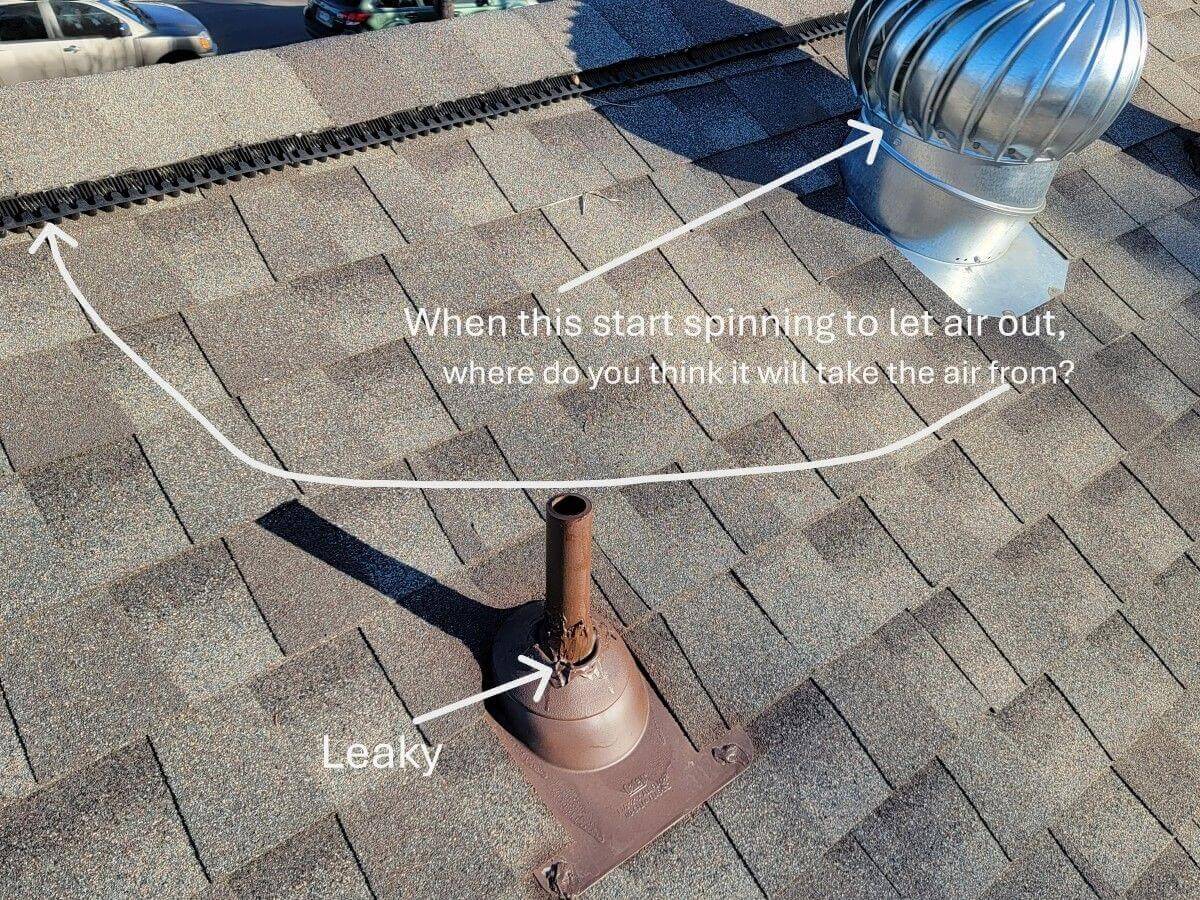
Failure Point 3: Unprotected Valleys & Penetrations
The valleys, which channel the highest volume of water, had no additional protection whatsoever—no IWS and no metal valley lining. Furthermore, pipe vent flashings were installed incorrectly, leaving clear and direct entry points for water into the attic space.
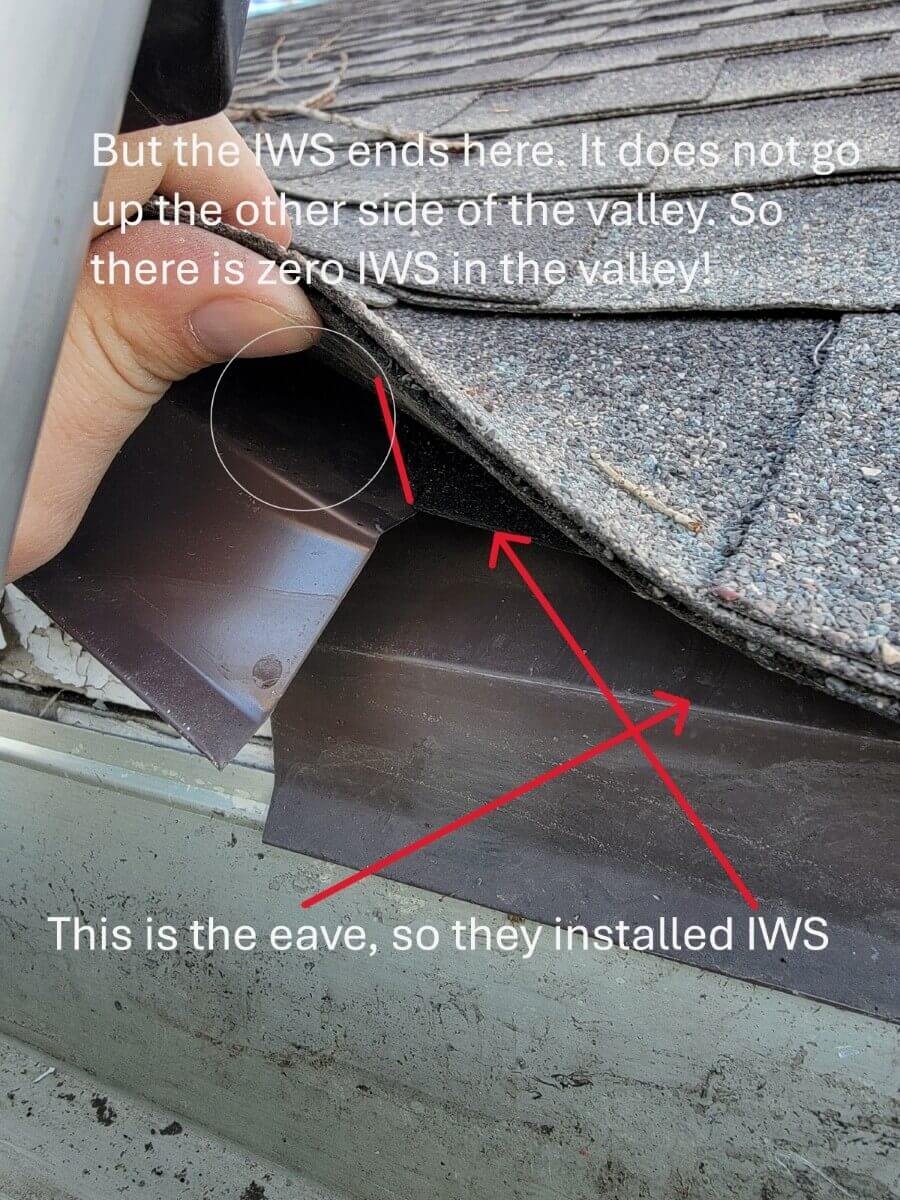
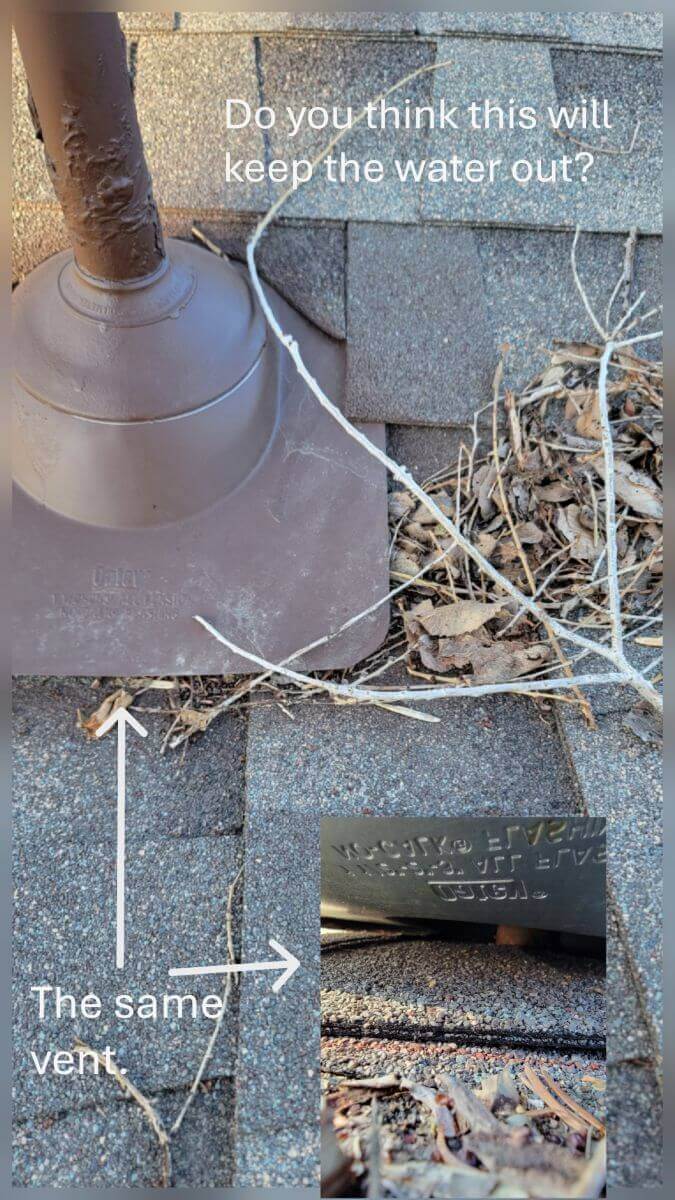
Failure Point 4: Improper Shingle & Edge Installation
Shingles along the rakes (the sloped edges) were cut too narrow, violating best practices and creating weak points for wind damage. The rake edges were also missing the required starter shingle, further compromising the roof's defense against wind.
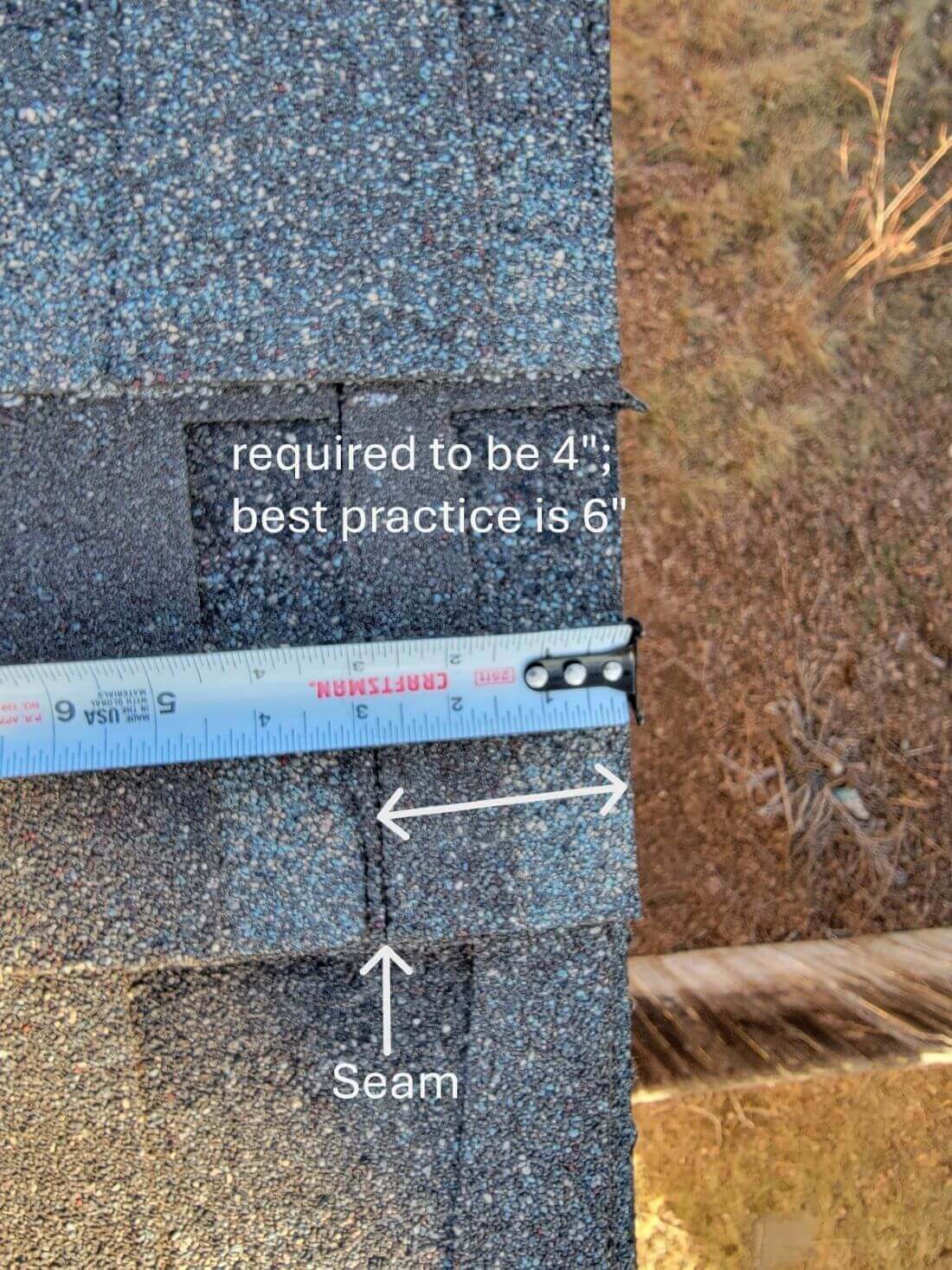
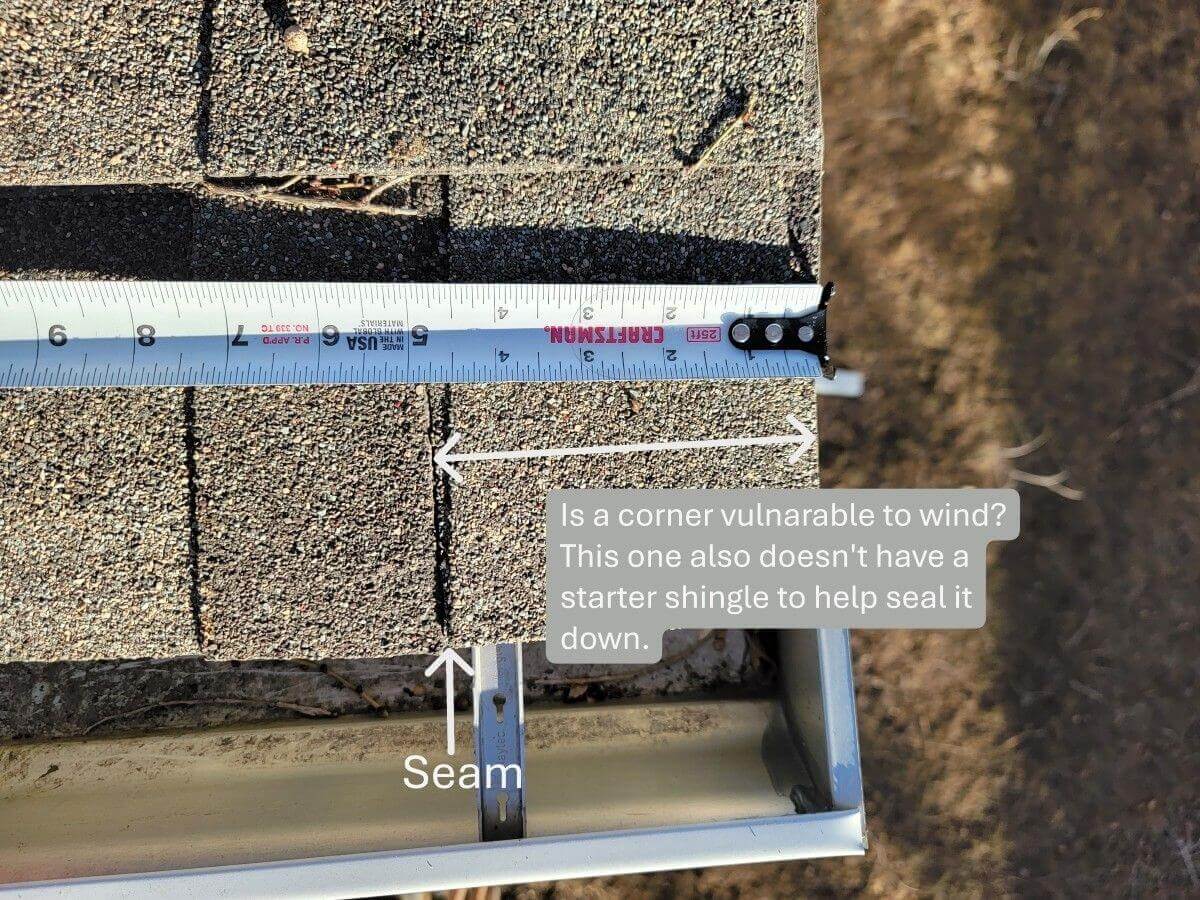
View the Original Field Report
This case study is based on the official second-opinion letter submitted to the homeowner. Download the full, declassified PDF to see the original intel.
Download Full Report (PDF)The Debrief
This case is a textbook example of how a "zombie roofer" system fails the homeowner. An uninformed crew, likely unsupervised, performed a series of critical errors that compromised every major system of the roof. The result was immediate failure in the form of ice dams and a voided manufacturer warranty.
Don't let a zombie on your roof.. If you suspect your stronghold has been compromised, it's time to call in an expert for a second opinion. A roof built to survive the apocalypse is about getting every detail right the first time. It's a no-Brainer!

